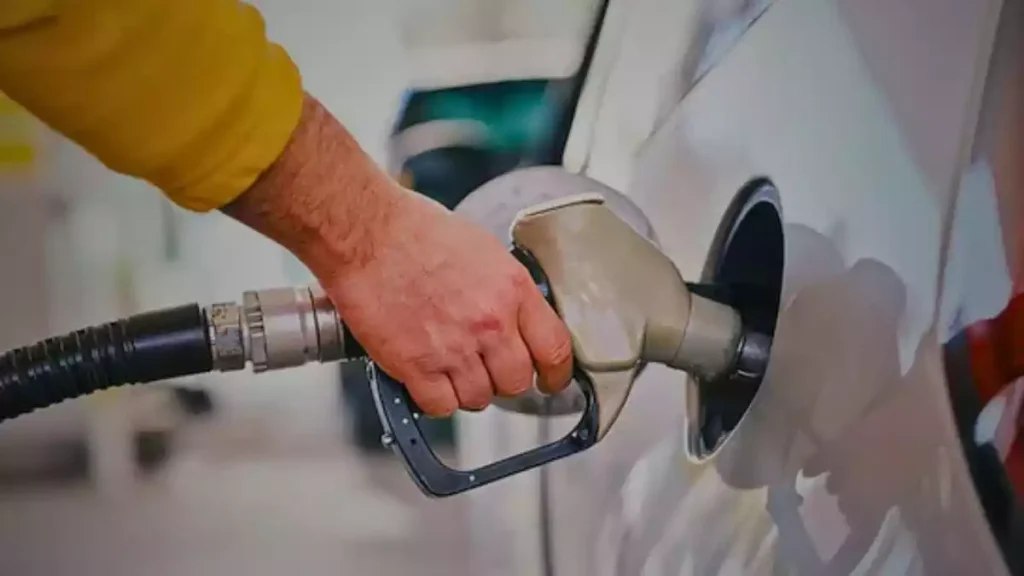E20 petrol, a blend of 20% ethanol and 80% petrol, is gaining popularity in India as a step toward cleaner fuel and energy security. However, many vehicle owners have raised concerns online about E20 petrol mileage dropping significantly. Questions around fuel efficiency, engine performance, and long-term effects have created confusion and debate.
This article explains what E20 petrol is, why mileage can be affected, and what experts and the government say about this viral issue.

What is E20 Petrol?
E20 petrol is a fuel mix containing 20% ethanol, a renewable biofuel made mostly from sugarcane in India, and 80% traditional petrol. It aims to reduce crude oil imports, lower carbon emissions, and support local farmers by increasing ethanol demand.
Compared to regular petrol, ethanol has a higher octane rating (around 108) but a lower energy density. This means ethanol burns cleaner and boosts engine performance somewhat but contains less energy per liter than pure petrol.
Why Does E20 Petrol Mileage Drop Occur?
The key reason for a drop in mileage with E20 petrol is the lower energy density of ethanol compared to petrol. Ethanol has about 26 MJ/kg of energy, whereas petrol has about 42 MJ/kg. Since E20 petrol contains 20% ethanol, its overall energy content is reduced by approximately 2-6%, depending on the exact blend and conditions. This means engines need to burn slightly more fuel to produce the same amount of power.
Other reasons include:
- Vehicles not tuned for E20 blending may face efficiency issues.
- Older vehicles and engines can experience corrosion or rubber degradation affecting fuel flow.
- Driving habits and traffic conditions can amplify mileage reductions.
What Does Science and Government Say?
Several studies by Indian organizations like ARAI, IOCL, and global automakers reviewed by the Ministry of Petroleum confirm a 2-6% drop in mileage on average with E20 fuel. Manufacturers have already started producing cars compatible with E20 that mitigate this loss to around 2-4%.
The government acknowledges these decreases but highlights the environmental and economic benefits:
- Lower carbon emissions by around 30%, contributing to cleaner air.
- Reduced crude oil imports benefiting India’s energy security.
- Support for farmers through increased ethanol production, leading to significant rural income.
The Petroleum Ministry and industry bodies stress that while mileage may be slightly lower, E20 fuel is safe for modern vehicles and does not cause engine damage with proper maintenance.
Viral Concerns and Real-World Mileage Drops
Despite official reports, many users have reported drops of up to 6-8% or even higher mileage on social media after switching to E20 petrol. Reasons include:
- Majority of vehicles on Indian roads are older models not designed for ethanol blends beyond E10.
- Incorrect fuel system materials causing corrosion and wear, reducing efficiency.
- Variability in maintenance and driving style.
The government recommends that E20 usage is mainly for vehicles manufactured post-April 2023 with compatible parts. They suggest a pricing rationale where E20 could be cheaper than regular petrol to compensate for slightly higher fuel consumption.
Pros and Cons of Using E20 Petrol
Pros
- Helps reduce carbon emissions and pollution.
- Supports rural economy by promoting local ethanol production.
- Potentially better engine knock resistance due to higher octane.
- Lower fuel price volatility as ethanol is made domestically.
Cons
- Slight drop in fuel mileage reported by users, around 2-6%.
- Not compatible with older vehicles leading to potential engine wear and tear.
- Fuel stations may not always price E20 cheaper than regular petrol.
- Real-world mileage loss varies with driving conditions and vehicle type.
What Should Vehicle Owners Do?
If using E20 petrol:
- Check if your vehicle is E20 compatible, especially if purchased after 2023.
- Ensure regular maintenance and use fuel system fluids that resist ethanol corrosion.
- Monitor mileage regularly and adjust driving style to optimize efficiency.
- Opt for fuels with ethanol-compatible additives where possible.
Final Verdict
The E20 petrol mileage controversy stems mainly from ethanol’s lower energy density affecting fuel consumption. While scientific studies and the government accept a small 2-6% mileage drop, viral user reports suggest it may be higher in older vehicles not adapted for this blend.
Despite minor mileage loss, E20 petrol offers substantial environmental and economic advantages, making it a crucial step toward India’s energy future. Vehicle owners should stay informed, maintain their cars well, and adopt fuels compatible with ethanol blends for the best experience.